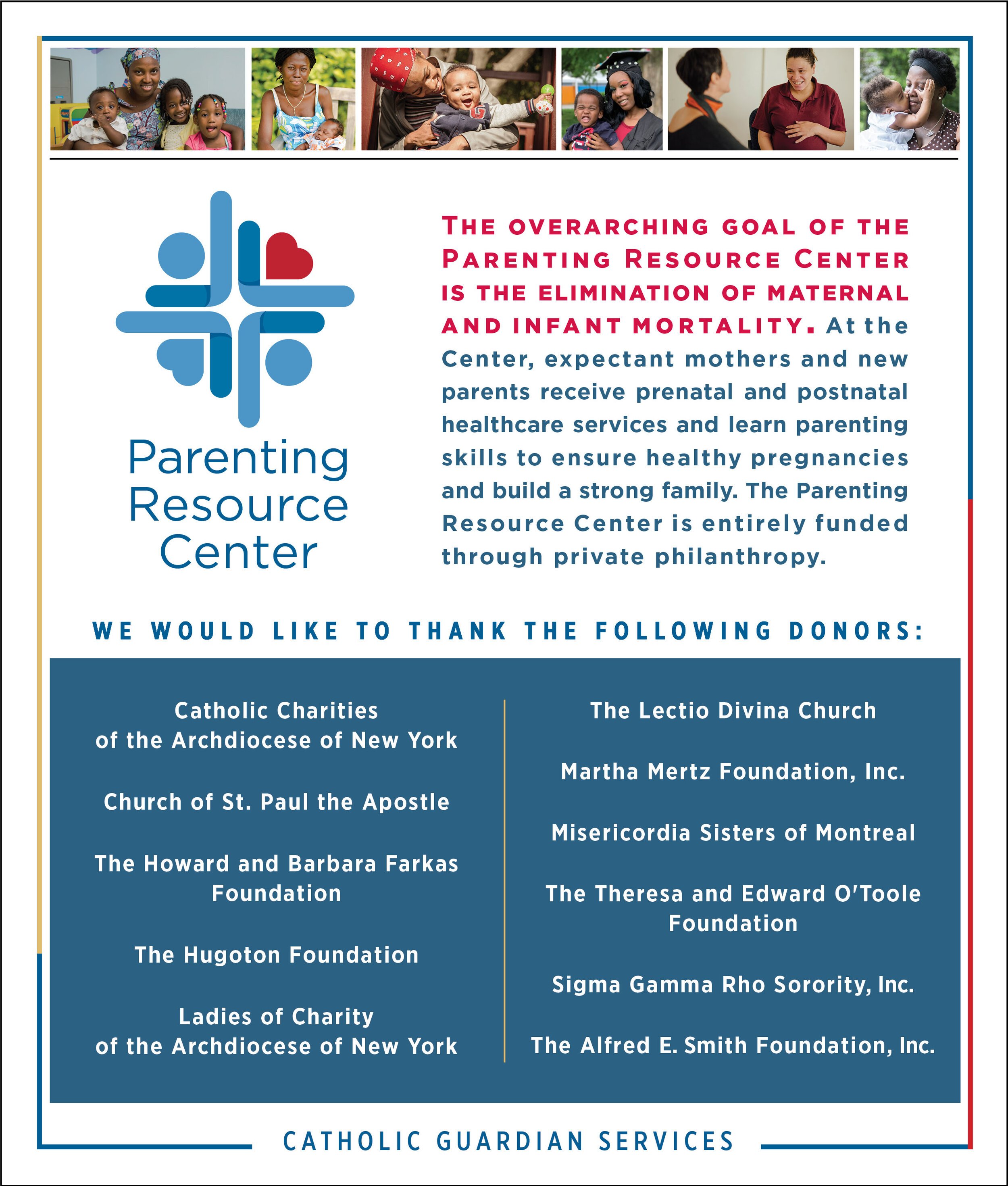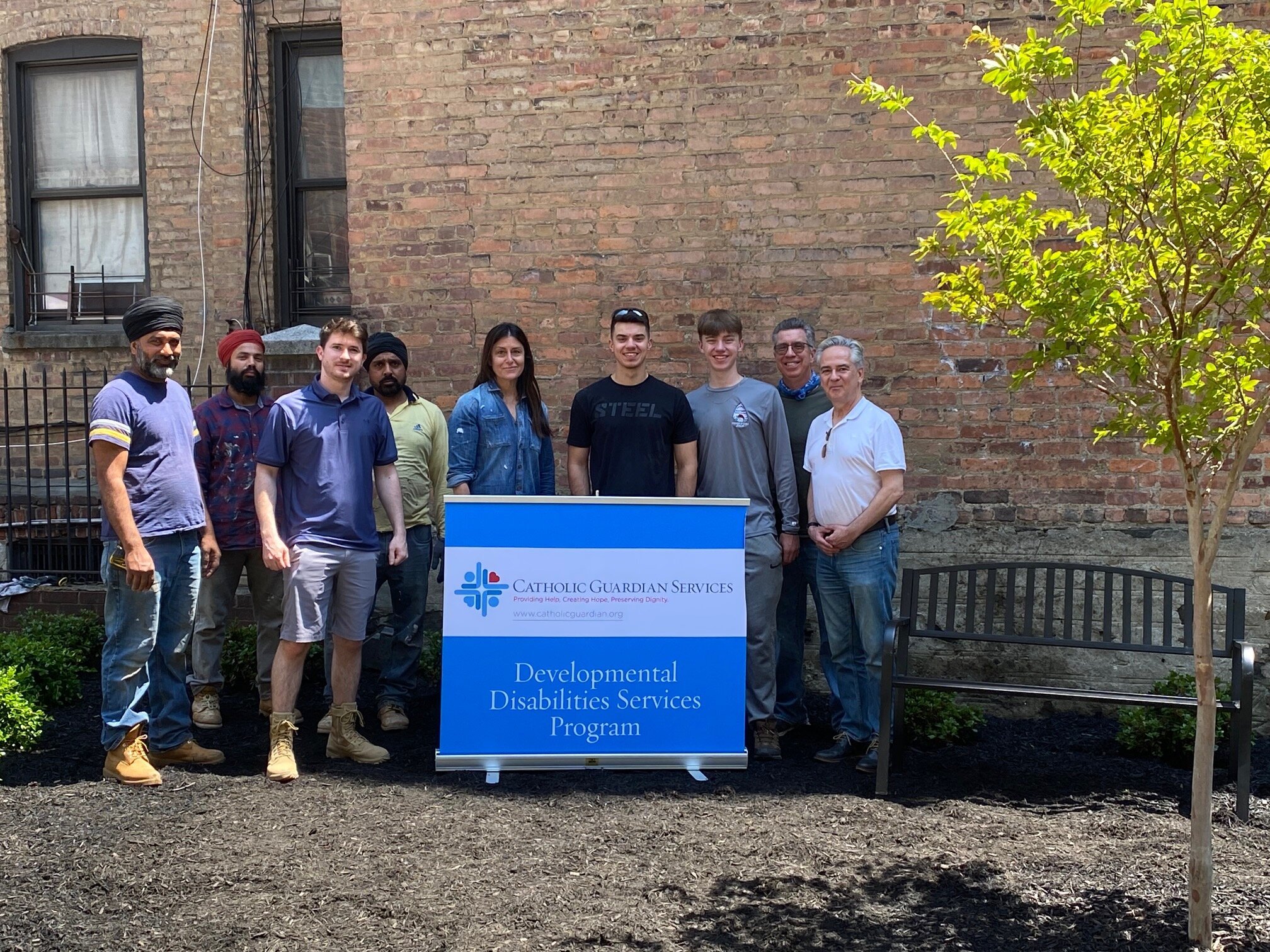Depression, DALYs and Disparate Calamity: The Ongoing Crisis of ACEs
Adverse Childhood Experiences (ACEs) are potentially traumatic events that occur before age 18 such as neglect, abuse, community or domestic violence, substance abuse within the home, or parental separation, incarceration, or mental health struggles. ACEs encompass many of the most tragic realities of childhood and are often at the root of some of the most common but burdensome psychological, emotional, and social challenges later in life. They have been discovered responsible for staggering amounts of socioeconomic and health disparity, particularly among historically and systemically marginalized groups, and their elimination can be quite reasonably considered one of the most insufficiently prioritized projects of modern Western society.
Individuals who have experienced four or more ACEs are 4.4 times as likely to develop depression, 10.2 times as likely to lapse into problematic drug use, and 12.2 times as likely to attempt suicide. ACEs are associated with at least five of the top ten leading causes of death and some 21 million cases of depression nationwide. Preventing ACEs could potentially reduce the prevalence of Chronic Obstructive Pulmonary Disease (COPD) by 27%, smoking by 33%, and unemployment by 15%. ACEs cost North America and Europe alone $1.33 trillion per year, and even a 10% reduction could save 3 million DALYs (Disability-adjusted life years, an aggregate measure of mortality and burden of disease) annually.
Children in foster care are astronomically more likely than their peers to experience ACEs, correlating with the substantiated reason(s) behind their original removal and placement. Many experts argue that, by definition, every child in the child welfare system has experienced at least one ACE in their lifetime, but 42% of those in the child welfare system have experienced four or more, and 69% have experienced at least three. In particular, 34% of foster children have experienced parental abuse, 40% have a parent who has been incarcerated, and 54% have been exposed to household substance abuse.
This disparate prevalence of ACEs leads to tragic outcomes later in life. Former foster youth are five times as likely to suffer from PTSD (double the rate of U.S./Iraq war veterans) and seven times as likely to develop a drug dependence. Up to 80% experience at least one serious behavioral or mental health problem requiring intervention, and according to Jim Casey Youth Opportunities, only 58% of transitioning foster youth graduate from high school by age 19, only 50% are employed by age 24, fewer than 3% will earn a college degree, over one in five will experience homelessness within four years of aging out, and one in four will be incarcerated within two. In addition, the Chapin Hall Center For Children found that 71% of young women who exit foster care at age 18 become pregnant by 21, and 79% of young men are arrested at least once by the same age.
As tragic as these trends are, ACEs are not death sentences that turn people into walking timebombs, and traumatized youth are not mere statistics waiting to happen. Using evidence-based, trauma-informed intervention and care approaches, child welfare providers have a unique opportunity to help at-risk youth defy the numbers, achieve stable independence, and actualize their full potential. However, it is vital that we acknowledge the disproportionate prevalence and profound, long-term impacts of these traumatic experiences among children and youth in the child welfare system and make every effort to holistically support their complex needs. Trauma does not define us, but that does not mean we’re invincible.
Fortunately, prioritizing and investing in child welfare is a macroeconomic cinch. According to Jim Casey Youth Opportunities, for every youth who ages out of the foster care system without a permanent home placement, taxpayers and communities pay an average of approximately $300,000 in social costs over that young person’s lifetime in expenses such as public assistance, incarceration expenditures, and absorbed community costs such as unrealized wages due to hindered educational attainment. With 26,000 young people aging out of foster care nationwide every year, this amounts to an annual sum of $7.8 billion in total costs. On the other hand, child maltreatment prevention and intervention programs can be bafflingly lucrative, yielding anywhere from $1.79 to over $20 per dollar invested in services. The benefits of robust care apply on the individual level as well, directly aiding foster youth: a 2018 report released by the University of Chicago-based research group Chapin Hall found that each year a foster youth spends in extended foster care—years beyond the state’s mandatory age-out cutoff—correlates with a 10-11% increased chance of enrolling in college, $404 extra in their bank account, a 28% reduction in the likelihood of homelessness or couch-surfing, and a 41% decrease in arrests.
Even more obvious than these cost efficiency considerations is our cardinal moral impetus to zealously safeguard and empower our children and youth. As we are all abruptly reminded every few weeks, anytime a child is abducted in the U.S., every smartphone in the state starts blaring with a piercing AMBER alert, even those on “Do Not Disturb” mode. In other words, one might say, we decided, as a society, that a child’s safety and well-being is worth interrupting our day to ensure— as well we should have.
At Catholic Guardian Services, through our array of frontline services—our Fair Futures Program, our Healthy Families Program, our Parenting Resource Center, the CGS Family Counseling & Wellness Center, our Youth Employment Services (YES!) Program, our child abuse prevention programs, our immigration services for children seeking asylum—we are helping to change the trajectory of precious lives and combat the debilitating effects of ACEs.
For more information about Catholic Guardian Services, please visit catholicguardian.org.
Outdoor Sporting Clays Event
Outdoor Sporting Clays is one of the fastest growing outdoor activities in the country and guests at Catholic Guardian’s inaugural Outdoor Sporting Clays Event spent a morning in June honing their skills at a fundraiser for the CGS Family Counseling & Wellness Center.
The event was held at the Pawling Mountain Club, a 1,500-acre expanse of pristine, unmarked woodlands with scenic shooting courses, a fleet of private instructors and golf carts, and gorgeous views of the majestic Catskills Mountains. Preparations are underway for the Second Annual Sporting Clays Event in June 2022.
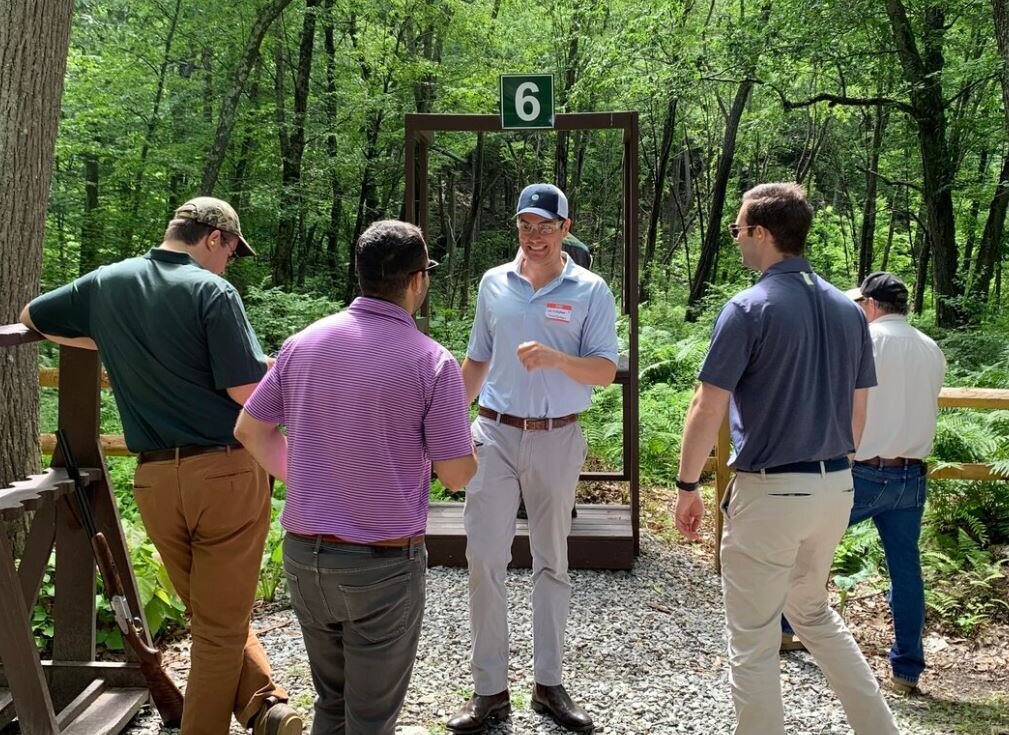
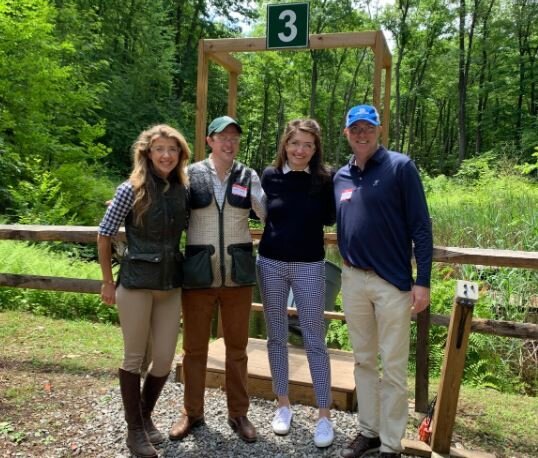
YES! 20 for 21 Matching Gift Challenge
Patrick J. O’Sullivan, Jr. ran 20 miles through all five New York City boroughs, raising $26,100 to benefit Catholic Guardian’s Youth Employment Services (YES!) Program, a holistic job-readiness training and mentorship program for youth in foster care to help end the unacceptably horrible homelessness, incarceration, substance abuse, and dependency outcomes for so many youths who age out of foster care.
O’Sullivan, a partner with Herrick, Feinstein LLP and board member of Catholic Guardian Services, finished his run at the CGS Family Counseling & Wellness Center in the Bronx. The Borough of Brooklyn declared July 17, 2021 “Patrick O’Sullivan Day” and he was awarded proclamations from the Borough Presidents of Brooklyn, Manhattan, and Queens. The 20-mile trek—on one of the hottest days of the summer—coincided with Patrick Sullivan’s birthday. Please join us in congratulating him and wishing him a Happy Birthday!
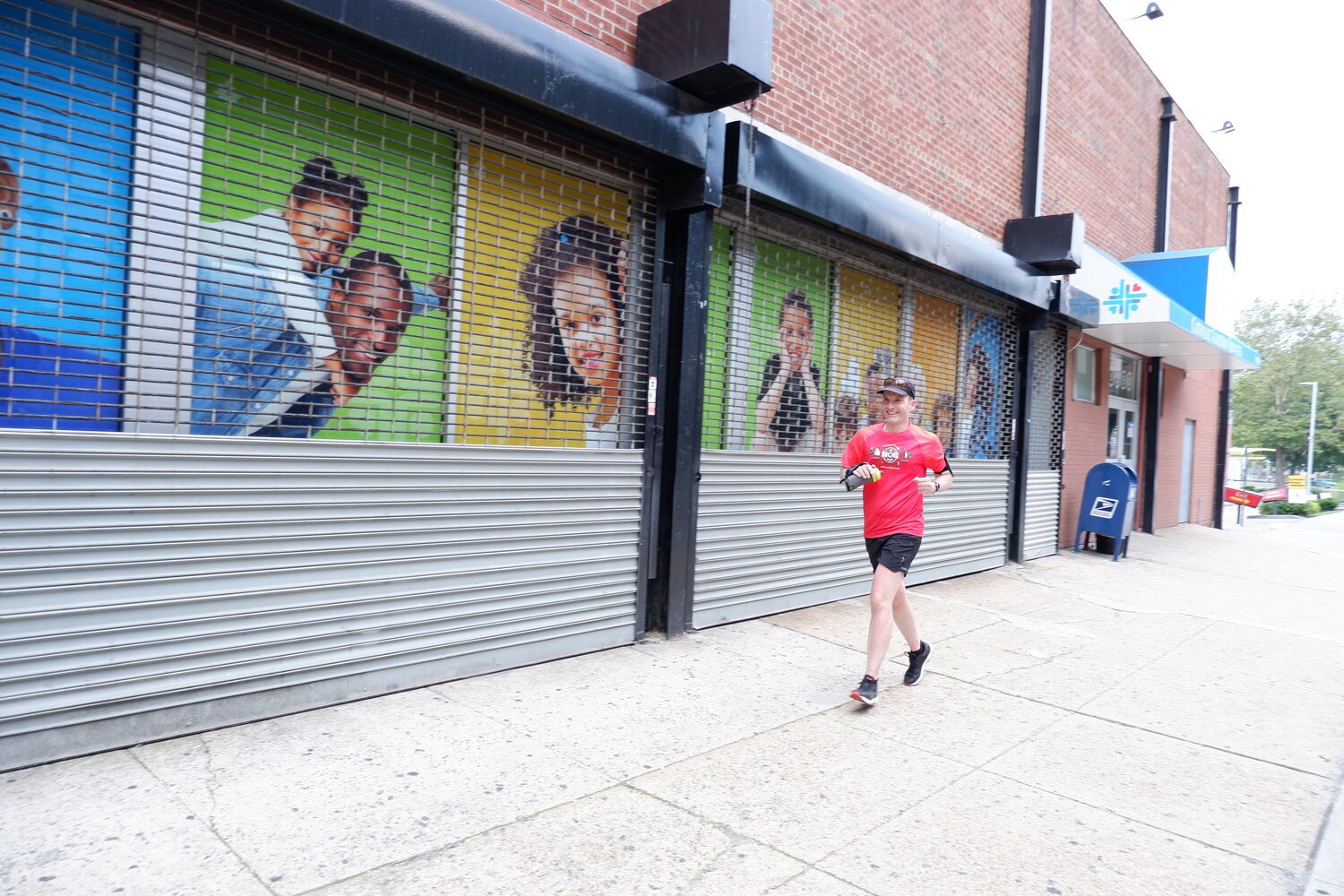
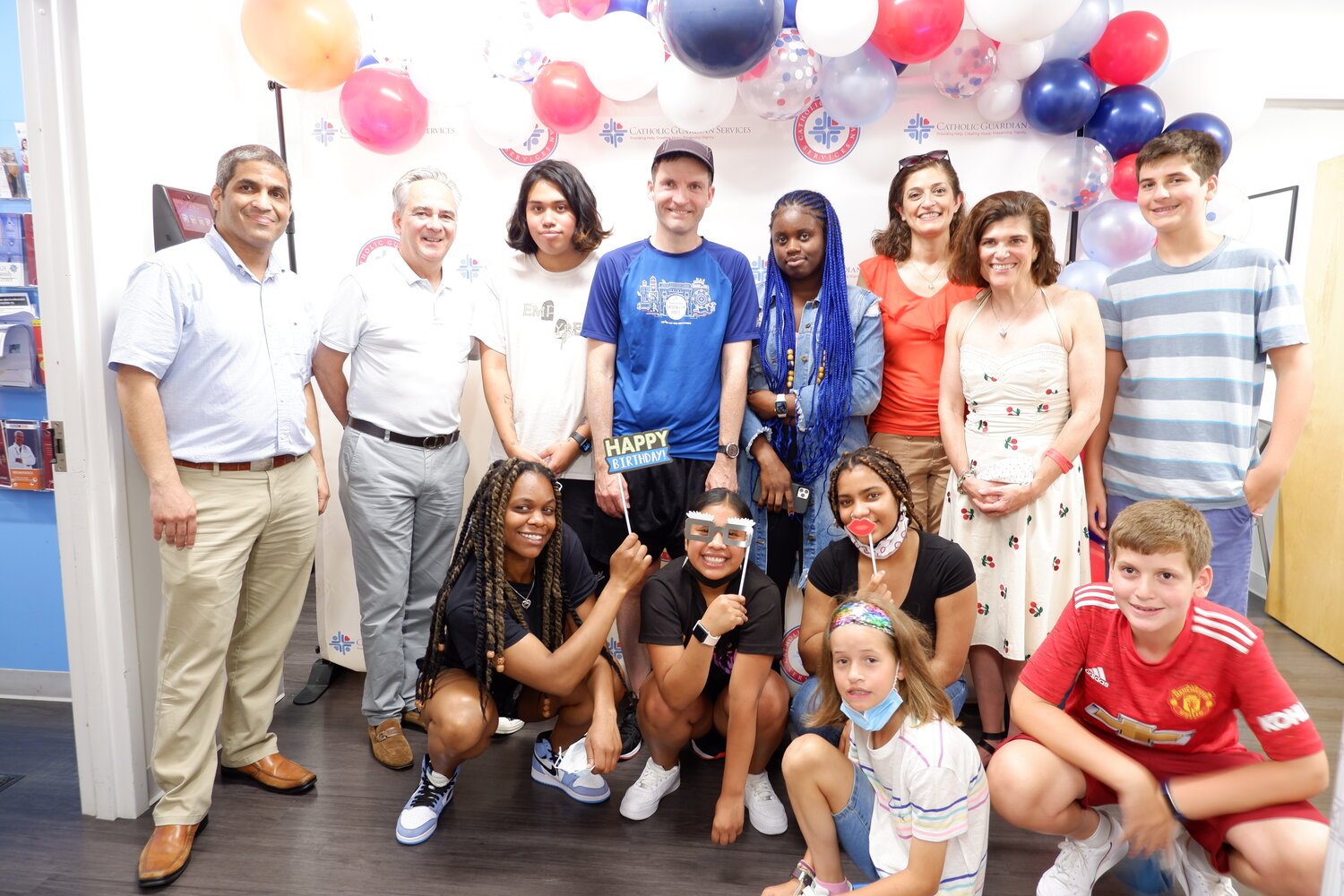
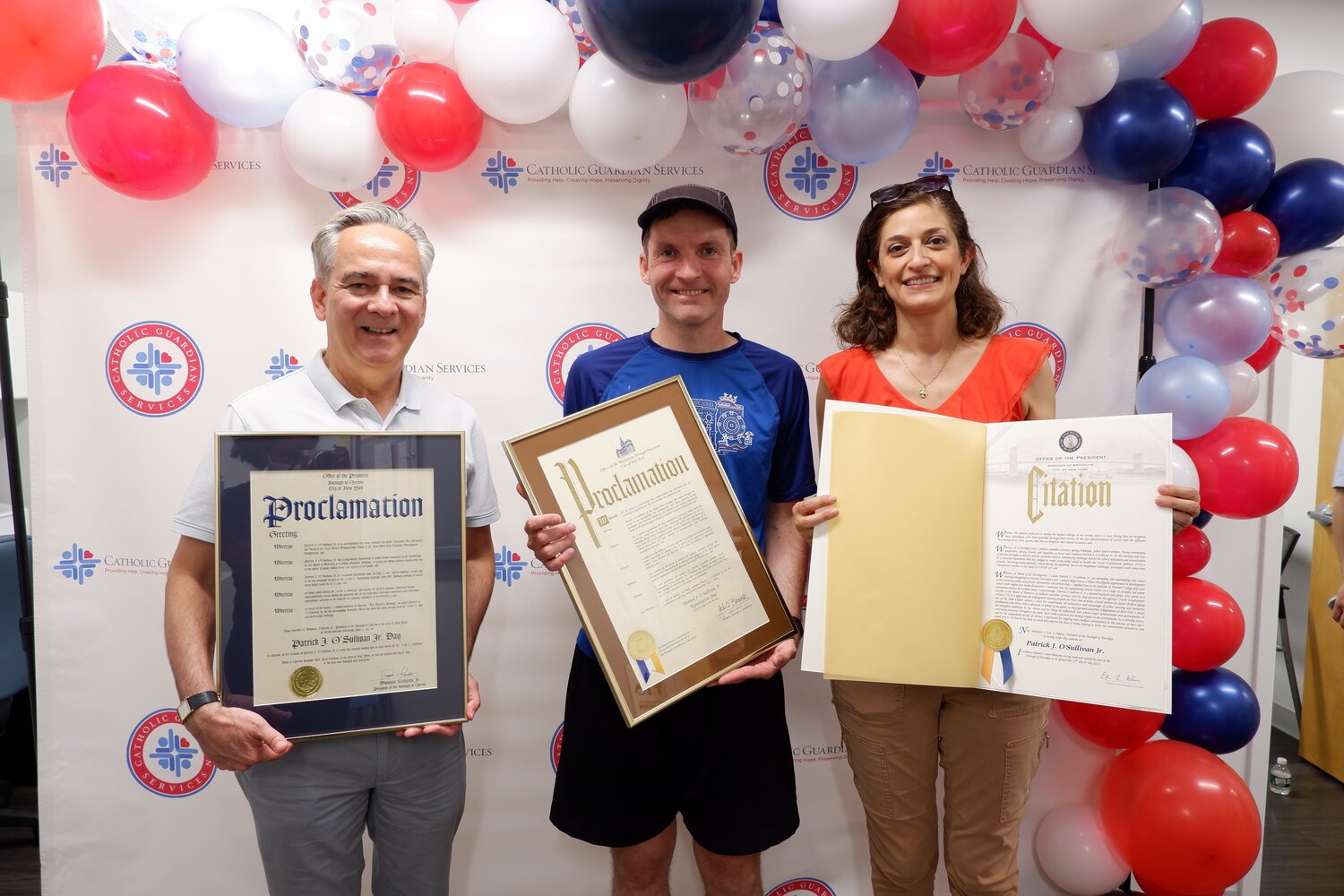
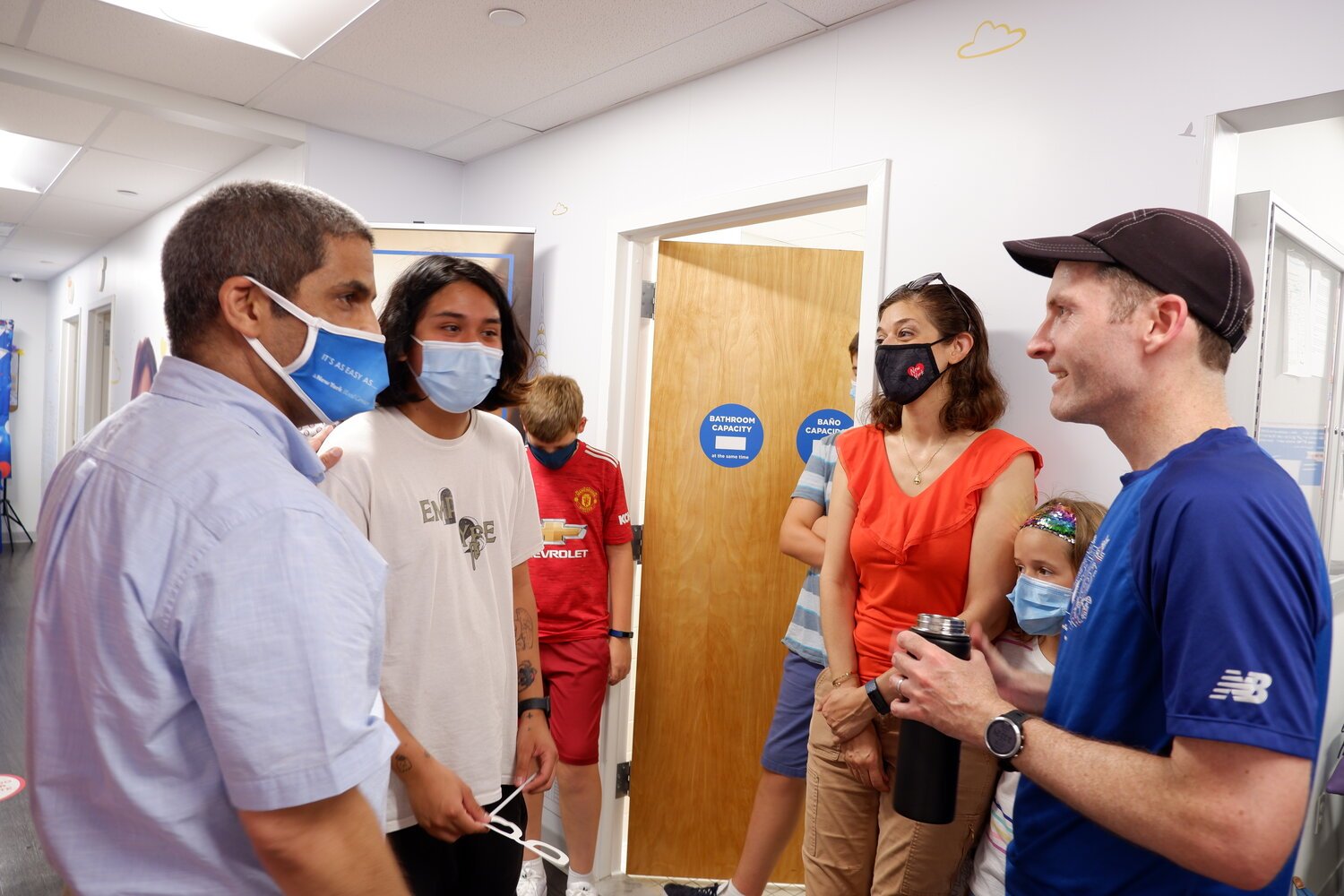
Yamila’s Story
Rosalie Hall, one of our revered predecessor agencies, helped single mothers navigate unplanned pregnancies. Rosalie Hall was founded by five Canadian Misericordia Sisters who arrived on Staten Island in 1887 at the request of Archbishop Michael Corrigan. The Sisters went on to serve more than 700 young mothers in their first six years alone and eventually went on to found Misericordia Hospital, now a part of Montefiore Medical Center in the Bronx.
The Sisters’ tireless work to safeguard and empower expectant and new mothers lives on in the Parenting Resource Center of Catholic Guardian Services. The Center offers a wide range of parenting education classes, direct support programs, and expert guidance and counseling on everything from breastfeeding to financial literacy. At the heart of the Parenting Resource Center’s mission is preventing maternal and infant mortality. Our longstanding tradition of providing each new mother with a baby shower, layette, and a safe new crib has earned Catholic Guardian Services an informal reputation as “The Crib Agency”. The Parenting Resource Center often serves as a particularly crucial refuge for single, low-income mothers of color in the Bronx. One such mother, Yamila, offered the following reflection:
When I first joined Parenting Resource Center at Catholic Guardian Services back in January 2020, I was 20 years old, I was living in Brooklyn, and I was 8 months pregnant with my sweet baby boy Kenneth. My due date was March 18, 2020 however, I gave birth on March 5, 2020. Also, at that specific time, I was attending Boricua College finishing up the last semester of my liberal arts associate degree, I didn’t have financial support in addition to being a full-time student, and expecting a baby was hard for me.
On one of my prenatal doctor's appointments at Women’s Health at New York-Presbyterian Hospital, the social worker at the hospital, who I saw regularly after every appointment, referred me to Catholic Guardian Services. She told me that they have a program that offers parenting/maternity classes and at the end of completing the four maternity workshops, they will give you a baby crib.
I decided to enroll in the program because I wanted to know everything about being a first-time mom. I wanted to be ready for the date of my baby boy's arrival to this world. Attending the workshops consistently was very important to me. I learned many new things every week which was very exciting and interesting to look forward to. The program provided me with baby items like feeding bottles, baby clothes, diapers, wipes, blankets, and the baby crib. It was a huge help and I am very appreciative of that. I wish this pandemic would end because I was looking forward to attending with my baby The Incredible Years Program as well. During my time in the program, I felt like we were a family, and eventually, the staff at Parenting Resource Center would meet my baby boy.
Now being a full-time bachelor student in the human services program and being a full-time mom, is so amazing!! My baby boy turned 1 year of age on March 5, 2021. Everything I learned in the maternity program, I applied along this journey of raising my baby boy; breastfeeding, safe sleep, burping, women's health, and all the essential things of being a new mom. I loved being a part of this group and program. Although my time at the program was very short, I was able to make acquaintance with two other mothers who also attended.
My assigned social worker, Mrs. Ramirez, at the maternity program was so kind, loving, and caring with the group and me. She showed her love and how passionate she is about working with pregnant women. Also, having the baby shower party at the end of the program was really sweet too, being that I didn’t have one on my own. That really meant a lot to me. Thank you so much for reading my story and I would definitely recommend this program to my friends and family.
To learn more, please visit catholicguardian.org. Several of our most vital programs—including the Parenting Resource Center, the Youth Employment Services (YES!) Program for foster youth, and the CGS Family Counseling & Wellness Center for children and caregivers experiencing mental or behavioral health challenges—rely upon private philanthropy.
Green Up Day In The Bronx
This spring, Catholic Guardian Services hosted “Green Up Day 2021,” a gardening project at one of our community-based residential homes in the Bronx. The residence is home to adults with developmental disabilities who receive support services to help them grow in independence and thrive. Volunteers worked together planting trees, evergreens, flowers, and shrubs. Please join us in extending our heartfelt thanks to our volunteers!






